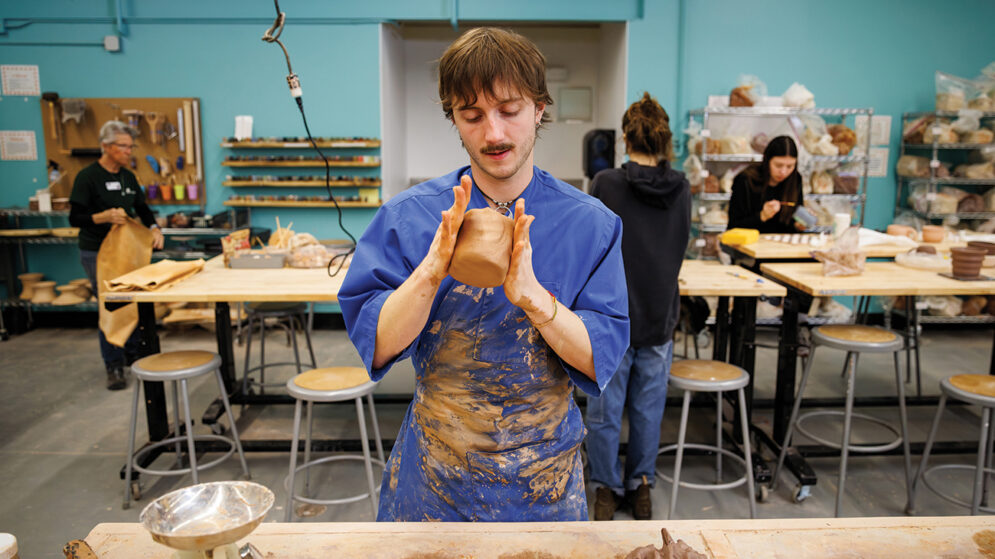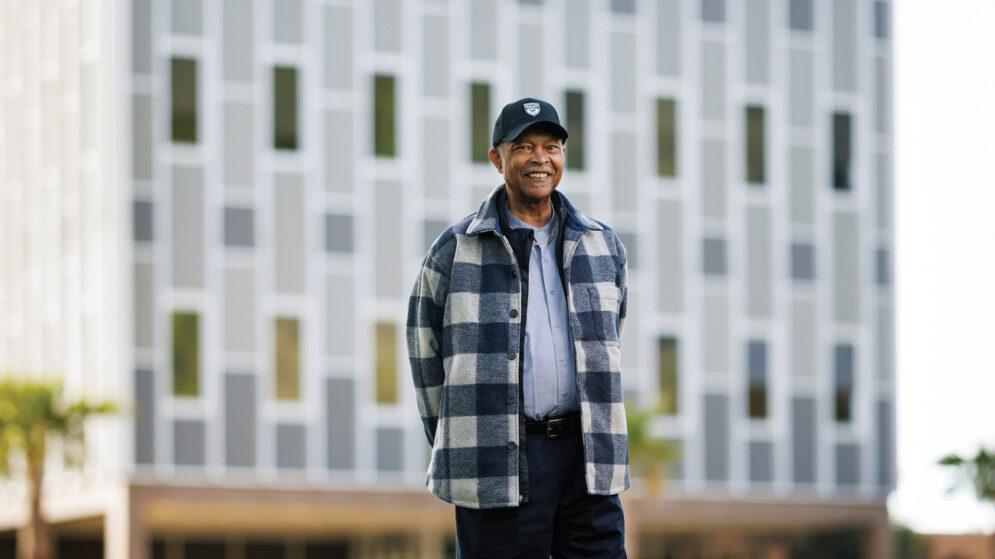Doing Good
Healthcare Delivered
At the Women’s Mobile Health Unit, students explore the medical field while providing free care to a vulnerable population.
By Larry Peña // Photos by Joe Johnston
Video by Matt Yoon and Dylan Head
Share this article:
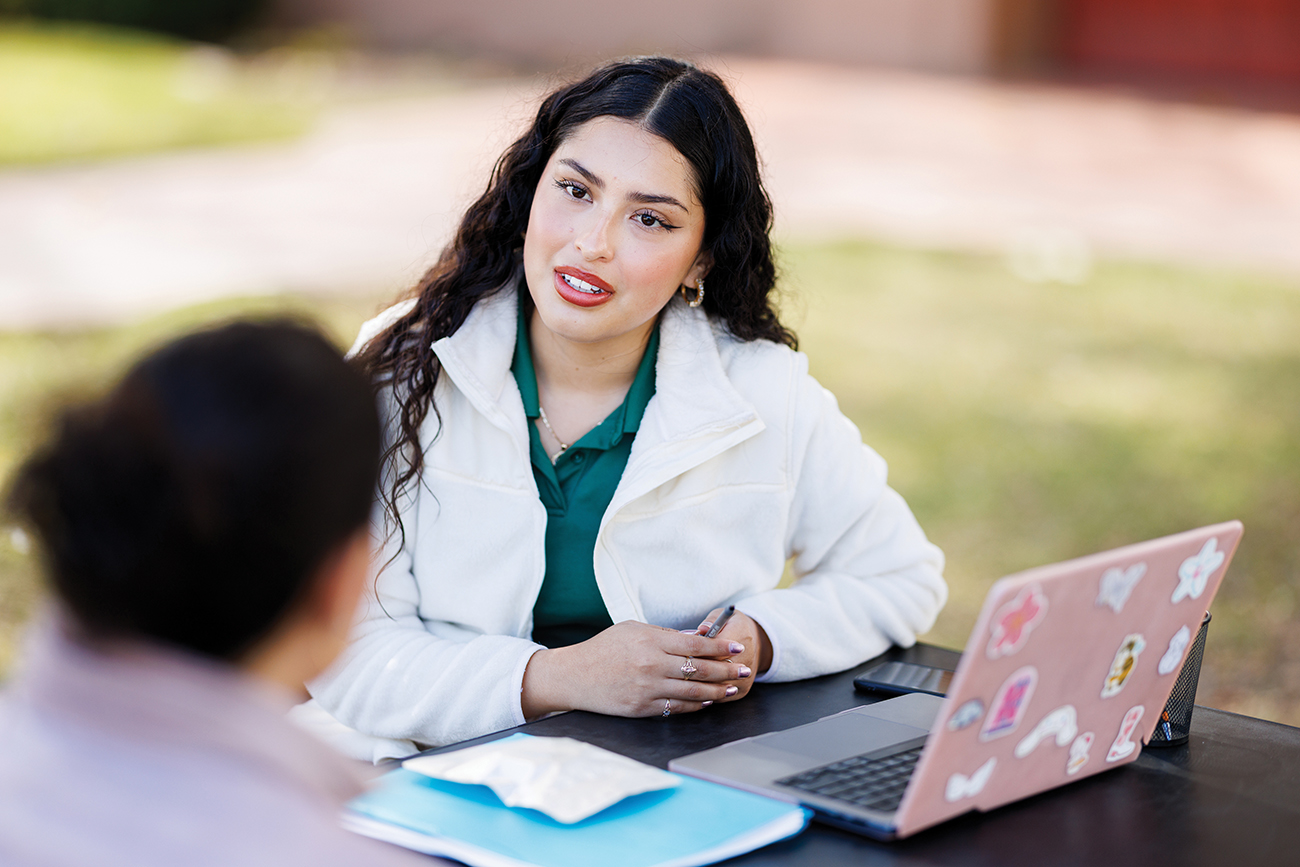
Public health student Neida Palacios interviews a clinic client.
At a plaza in Santa Maria, California, three Cal Poly students assist a client as she checks in for her annual physical exam. They take the patient’s basic vital stats like height, weight, temperature and blood pressure — and help her through the paperwork she’ll need as she completes her checkup.
After a few more questions, the students lead the patient to her exam room: a white RV parked nearby, retrofitted as a professionally equipped mobile clinic, staffed by a licensed nurse practitioner, a phlebotomist, medical assistant, social worker, an interpreter and a team of health ambassadors.
The Cal Poly Women’s Mobile Health Unit is an ongoing project that provides healthcare services in English, Spanish and Mixtec for low-income, uninsured or under-insured women in the Santa Maria Valley.
The clinic operates in partnership with the SLO NOOR Foundation and Santa Maria’s Marian Medical Center. It provides a range of services including annual health exams, pelvic and physical breast exams, colon cancer screening, diabetes and cholesterol testing, as well as referrals to other health and wellness professionals for additional services or community resources. Everything is completely free of charge.
For many clients, the mobile clinic is the only medical care they might receive. According to clinic coordinator Cristina Macedo, more than 26% of women in Santa Maria and Guadalupe lack healthcare coverage, and so many women — especially in low-income and immigrant communities — forgo even the most basic checkups.
“This job sets you into a world where you’re actually in the position to do something that matters. It’s a lot easier to be motivated when you’re really in touch with people personally.”
Audrey Sutton, fourth-year biology major
“We’ve had women who tell us that they haven’t seen a doctor in five years,” says Macedo. “I think working here opens up a different world for our students, because this is the reality in a lot of communities. Students who want to be physicians or work in public health need to be able to understand this population.”
For students interested in those career paths, the clinic is one of the best opportunities to gain experiences in critical issues facing the industry.
“It’s such a rare thing to be able to find actual hands-on medical experience as an undergrad,” says Audrey Sutton, a fourth-year biology major who is planning to attend medical school. “This job sets you into a world where you’re actually in the position to do something that matters. It’s a lot easier to be motivated when you’re really in touch with people personally.”
To work at the clinic, students must first take a course on how to be a health ambassador. The class covers medical privacy laws, basic medical assistant techniques and how to discuss sensitive health and wellness topics. It also educates students on cultural awareness and common issues in the community.
“This clinic gives me a better perspective on the community that we’re serving,” says Victoria Saavedra, a third-year sociology major who has been working at the clinic for a few months. “There are so many people that don’t have access to equitable healthcare, and it just feels so satisfying to be able to provide that. Everybody deserves competent, adequate care, and I’m just so proud to be a part of something that serves the community so well.”
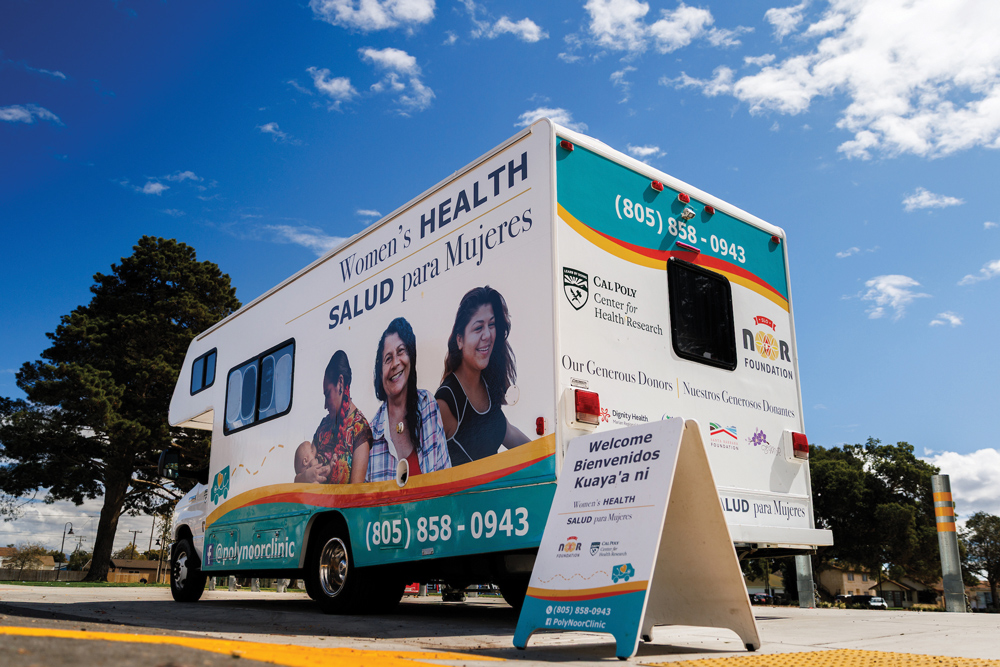
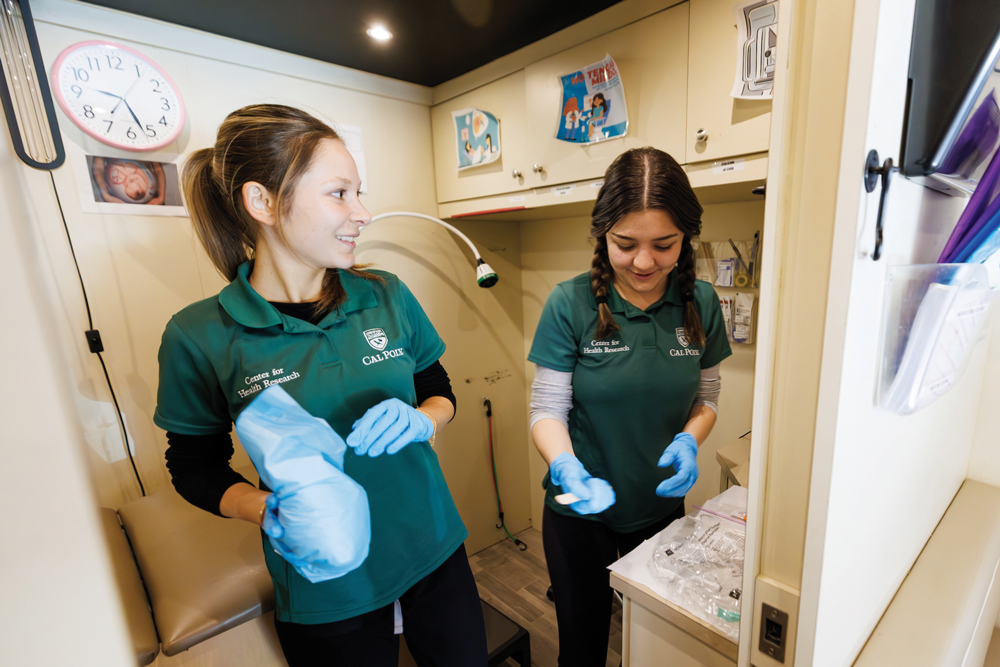
First photo: The Women’s Mobile Health Unit at a recent session in Santa Maria. Second photo: Students Audrey Sutton and Victoria Saavedra reset the clinic’s exam room after a checkup.
For third-year public health major Neida Palacios, who got involved with the clinic her first year, the work is even more personal. She was born and raised in Santa Maria and grew up seeing firsthand what it was like to not have regular access to healthcare.
“These women remind me so much of my own mom, my aunts and my family members,” she says. “This is why I chose public health, because I wanted to learn more about what I could do to address the disparities in my community.”
Inspired by her work at the clinic, Palacios is currently working on a research project spearheaded by Cal Poly public health professor Suzanne Phelan, assessing health outcomes specific to farm laborers. On clinic days, she invites clients who fit that description to participate, logging their answers to a series of questions about health factors and information gleaned from their health screenings to determine any patterns in the healthcare needs of this vulnerable population.
“It’s just so nice knowing that I get to go back to my community, to see what they’re going through and to actually be able to do something about it,” she says.
Watch Neida Palacios and Dr. Suzanne Phelan talk about their bond and what it means to help the community in Santa Maria.
Your Next Read
Drop by the ASI Craft Center, where busy students can engage their creative side.
One groundbreaking alumnus was recently honored for his work helping to extend opportunities to generations of Cal Poly students.


